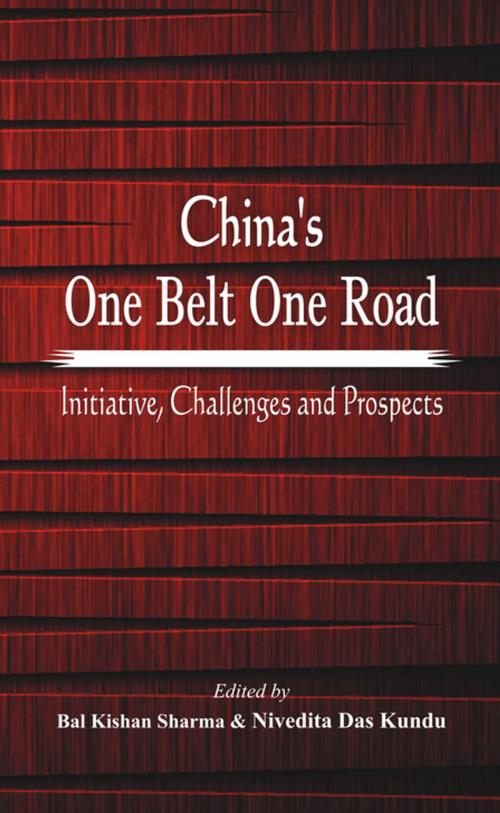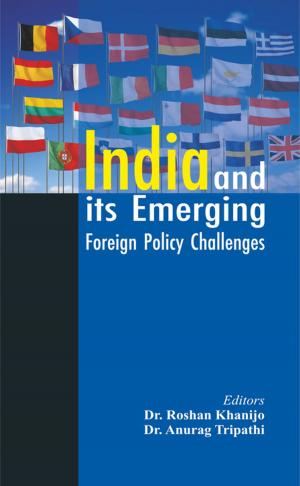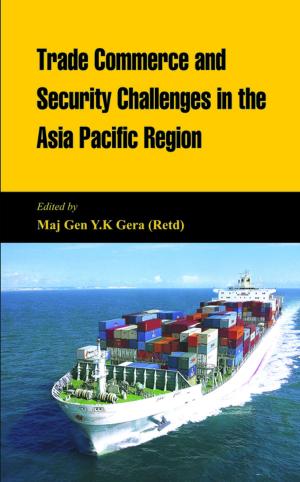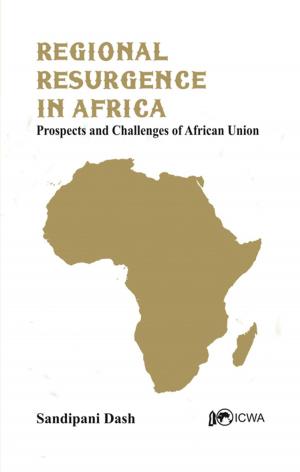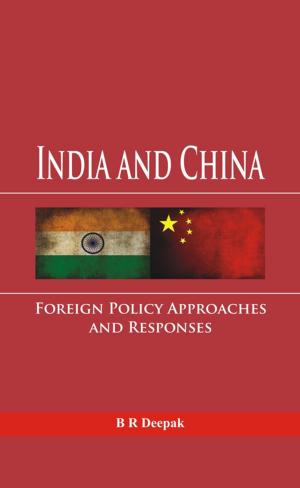China’s One Belt One Road
Initiative, Challenges and Prospects
Nonfiction, Social & Cultural Studies, Political Science, International, International Security, Politics, History & Theory| Author: | ISBN: | 9789385563607 | |
| Publisher: | VIJ Books (India) PVT Ltd | Publication: | July 1, 2016 |
| Imprint: | VIJ Books (India) Pty Ltd | Language: | English |
| Author: | |
| ISBN: | 9789385563607 |
| Publisher: | VIJ Books (India) PVT Ltd |
| Publication: | July 1, 2016 |
| Imprint: | VIJ Books (India) Pty Ltd |
| Language: | English |
The Chapters in this book written by Chinese and Indian academics and researchers from United Service Institution of India and Sichuan University, explaining the inter-disciplinary approaches and comparative perspectives, that may help to understand the essence and implication of China’s ‘One Belt One Road’, initiative by identifying the convergences of interest in terms of social and economic development, political and cultural exchanges and remove the potential hindrance. The Chapters explained the scope of the ‘One Belt One Road’ initiative as the mega development project and framework proposed by China, focussing on connectivity and cooperation amoung the regional countries, which till date received mixed reactions. There have been debates across the world regarding different facets of the OBOR initiative from whether it is an economic or strategic initiative or only a re-branding or a slogan for already existing ideas and projects. The views and vision expressed by the authors on OBOR in this volume focused on OBOR’s economic approach and nature with parallel initiative to cultural aspects, along with the educational and health care sectors cooperation. The Chapters in this Book focussed on OBOR connectivity both on ‘Land’ and ‘Sea’ routes, as OBOR initiative has proposals to connect the Nations by road, rail, and sea. It is quite obvious that OBOR is an ambitious project aimed at spurring the growth of Chinese economy; however, it is natural that such a vast project and ambition needs to provide adequate security guarantees and confidence building measures. The authors highlighted in the Chapters that to ensure proper consideration of both core and specific interests of individual countries for active participation in the OBOR projects there is a need to promote active interaction for studying the implications and benefits. The authors also elaborated in the Chapters the challenges, opportunities, basic principle and rules of action for such trans-regional project like OBOR for achieving success. In this Volume the authors tried to provide both China’s and India’s perspective highlighting the significance of reviving the ancient Silk Road connectivity that extends on the world map connecting East with the West. The Chapter’s highlighted opinion expressed by the policy makers, strategic analysts and academics in India and China, concerning various implications attached with the OBOR initiative. Chapters in this volume highlighted various opportunities, concerns and challenges looking into the policy options as well as academic considerations, however, the argument clearly indicates that there is a need to act strategically on issues related to OBOR both on the ‘land’ and ‘Sea’ roads. The arguments given focuses on the suspicion that still exists in understanding the OBOR’s aspirations clearly, hence, it is felt that further clarification on OBOR, alongside with a range of issues between India and China is necessary to facilitate an objective understanding on OBOR and formulate the structure based on mutual benefits.
The Chapters in this book written by Chinese and Indian academics and researchers from United Service Institution of India and Sichuan University, explaining the inter-disciplinary approaches and comparative perspectives, that may help to understand the essence and implication of China’s ‘One Belt One Road’, initiative by identifying the convergences of interest in terms of social and economic development, political and cultural exchanges and remove the potential hindrance. The Chapters explained the scope of the ‘One Belt One Road’ initiative as the mega development project and framework proposed by China, focussing on connectivity and cooperation amoung the regional countries, which till date received mixed reactions. There have been debates across the world regarding different facets of the OBOR initiative from whether it is an economic or strategic initiative or only a re-branding or a slogan for already existing ideas and projects. The views and vision expressed by the authors on OBOR in this volume focused on OBOR’s economic approach and nature with parallel initiative to cultural aspects, along with the educational and health care sectors cooperation. The Chapters in this Book focussed on OBOR connectivity both on ‘Land’ and ‘Sea’ routes, as OBOR initiative has proposals to connect the Nations by road, rail, and sea. It is quite obvious that OBOR is an ambitious project aimed at spurring the growth of Chinese economy; however, it is natural that such a vast project and ambition needs to provide adequate security guarantees and confidence building measures. The authors highlighted in the Chapters that to ensure proper consideration of both core and specific interests of individual countries for active participation in the OBOR projects there is a need to promote active interaction for studying the implications and benefits. The authors also elaborated in the Chapters the challenges, opportunities, basic principle and rules of action for such trans-regional project like OBOR for achieving success. In this Volume the authors tried to provide both China’s and India’s perspective highlighting the significance of reviving the ancient Silk Road connectivity that extends on the world map connecting East with the West. The Chapter’s highlighted opinion expressed by the policy makers, strategic analysts and academics in India and China, concerning various implications attached with the OBOR initiative. Chapters in this volume highlighted various opportunities, concerns and challenges looking into the policy options as well as academic considerations, however, the argument clearly indicates that there is a need to act strategically on issues related to OBOR both on the ‘land’ and ‘Sea’ roads. The arguments given focuses on the suspicion that still exists in understanding the OBOR’s aspirations clearly, hence, it is felt that further clarification on OBOR, alongside with a range of issues between India and China is necessary to facilitate an objective understanding on OBOR and formulate the structure based on mutual benefits.
